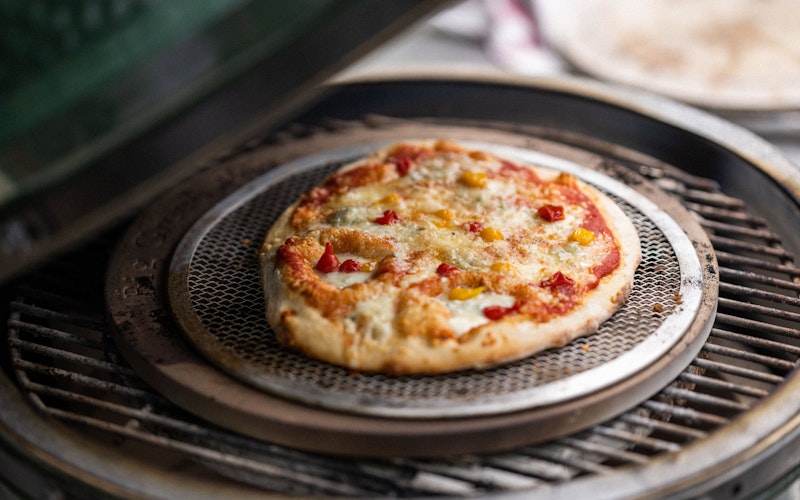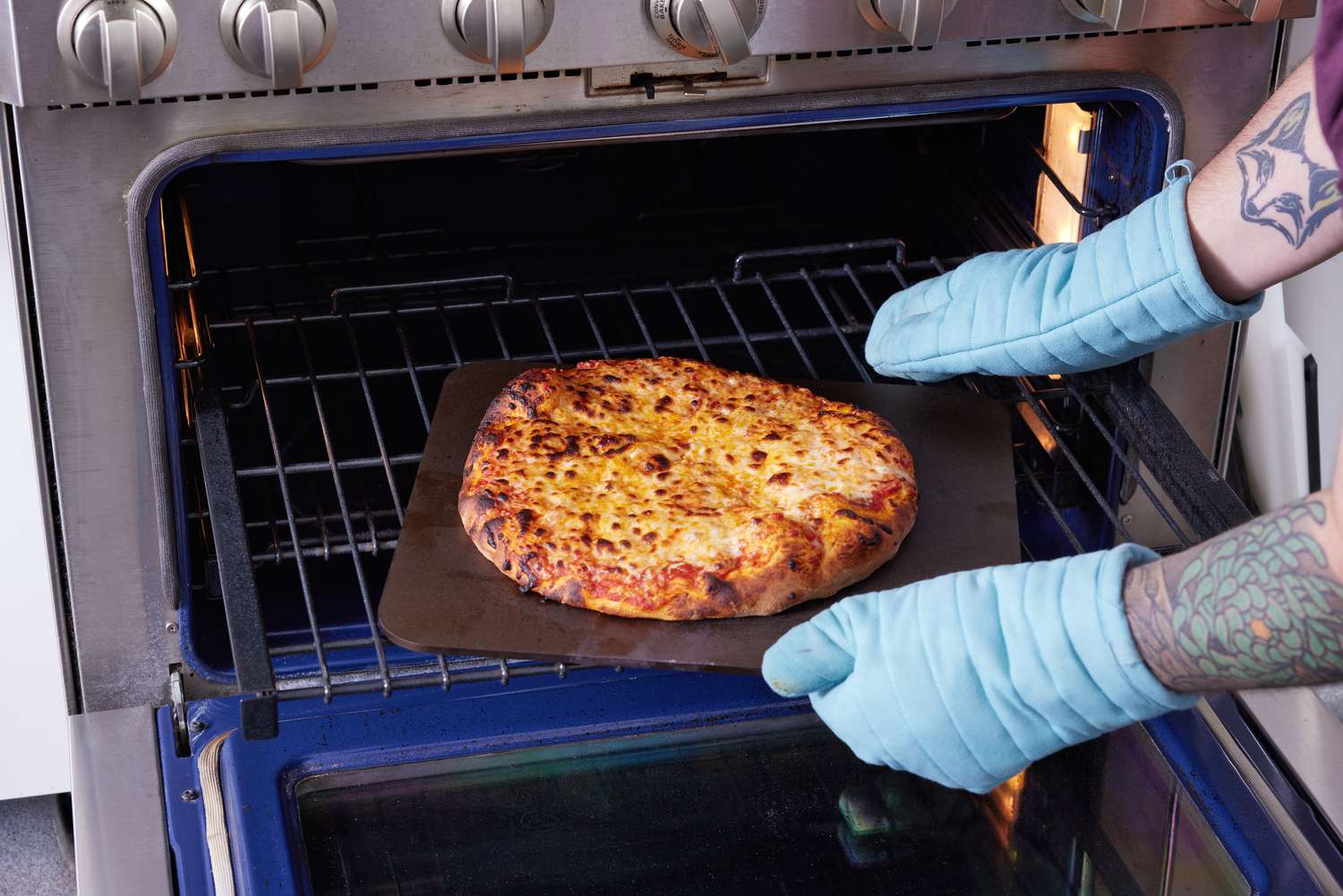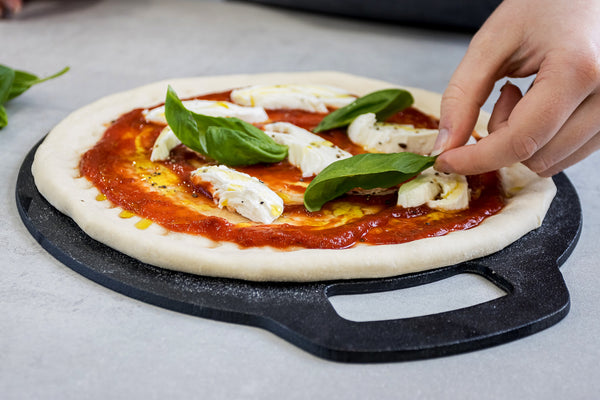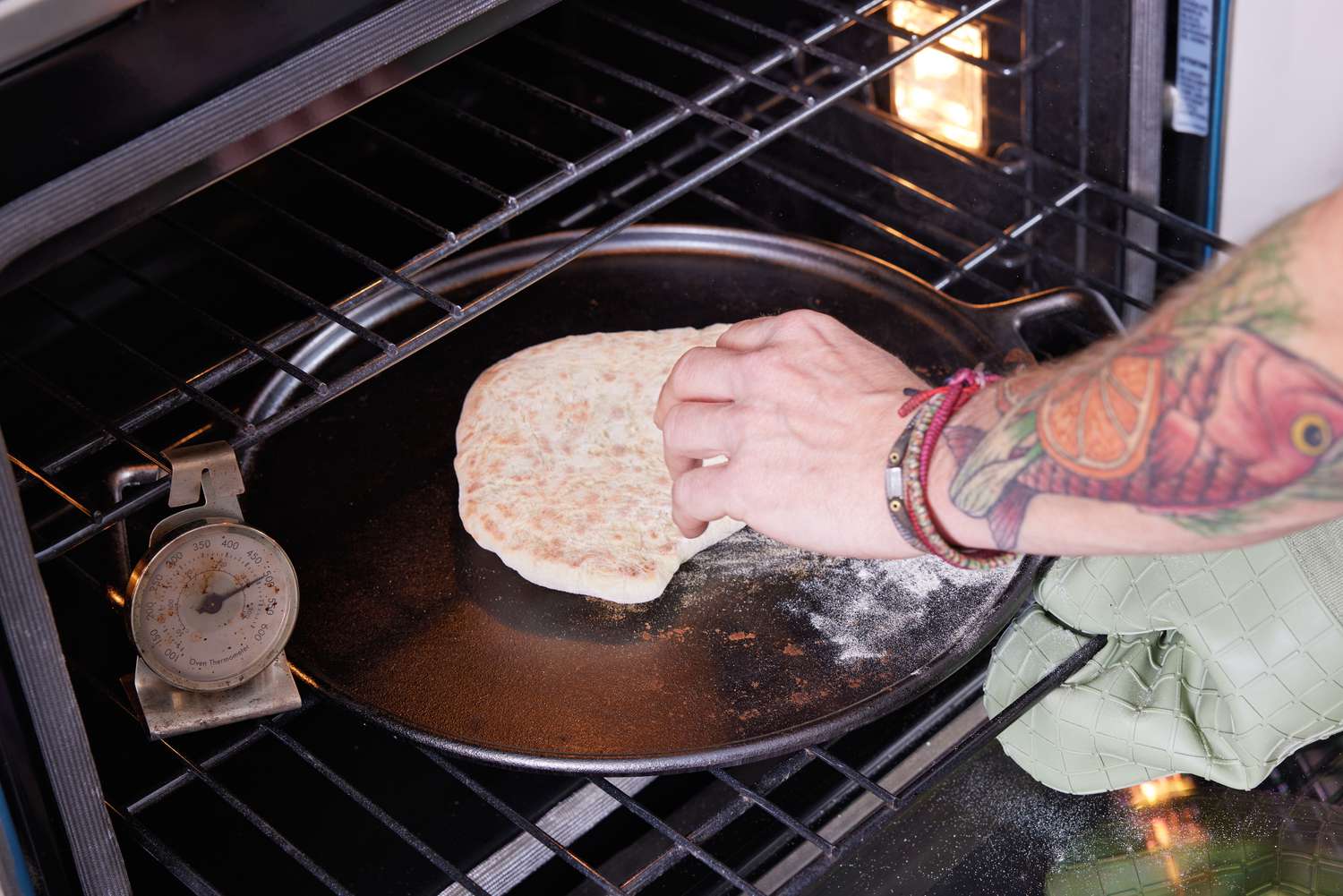In the bustling world of professional kitchens, the choice of equipment can dramatically impact the quality of your culinary creations. Among these tools, the decision of using cast iron vs ceramic baking stones is pivotal. Each material has its own set of advantages and specific applications that can make a significant difference in the outcome of your baked goods.
Understanding the unique properties of both cast iron and ceramic baking stones will empower you to choose the right tool for your specific needs, whether you're perfecting the crust of a pizza or baking artisanal bread.
:max_bytes(150000):strip_icc()/pizza-stone-testing-winners-the-original-baking-steel-wdickey-7-63-0eab155b17994dcc94fe89c908bab57d.jpg)
Characteristics of Cast Iron Baking Stones
Cast iron is renowned for its robustness and heat retention capabilities, qualities that make it an excellent choice for a baking base. Its heavy nature allows for consistent heat distribution, which can be crucial in a professional setting where precision is key.
Another benefit of cast iron baking stones is their versatility. They can move seamlessly from the stovetop to the oven, allowing chefs to experiment with a variety of cooking methods. However, it is worth noting the maintenance required for cast iron; seasoning is essential to preserve its longevity and non-stick qualities.
Advantages of Ceramic Baking Stones
Ceramic baking stones, on the other hand, offer different advantages. They are typically lighter than cast iron and can provide an evenly heated surface ideal for achieving a perfect bake. This even heat distribution is particularly beneficial when making delicate pastries and breads.
Moreover, ceramic stones tend to be more forgiving towards crusts, helping achieve a crisp exterior without overcooking the inside. However, they can be more fragile than cast iron and may crack if not handled carefully.
Comparative Performance in Professional Kitchens
The decision of using cast iron vs ceramic baking stones often comes down to the specific needs of a professional kitchen. For instance, if speed and versatility are required, cast iron may be the preferred choice due to its ability to withstand high temperatures and its multipurpose nature.
Conversely, if precision and delicacy are crucial, a ceramic baking stone might be more advantageous. Its ability to maintain consistent, gentle heat makes it ideal for tasks where even cooking is essential. For additional insights into maintaining these tools, you might find this guide useful.

Practical Tips for Kitchen Professionals
Considering the frequent use and conditions of a professional kitchen, proper maintenance and care are imperative for both types of baking stones. Regular cleaning and appropriate storage can extend their lifespan significantly.
Additionally, understanding the limitations and strengths of each material can help in choosing the right stone for the right recipe. Engaging with educational resources, such as this baking stone article, can further your knowledge and proficiency in using these tools.
FAQ Section
1. How do I properly season a cast iron baking stone?
Seasoning involves applying a thin layer of oil to the cast iron and baking it at a high temperature. This process helps develop a non-stick surface and prevent rusting.
2. Can I use my ceramic baking stone on the grill?
While some ceramic stones can be used on the grill, it's essential to check the manufacturer's guidelines to avoid damaging the stone due to thermal shock.
3. How often should I clean my baking stones?
Regular cleaning after each use is recommended. For deeper cleaning methods, you might consider reading about preparing a baking stone.
This article contains affiliate links. We may earn a commission at no extra cost to you.






Leave a comment
This site is protected by hCaptcha and the hCaptcha Privacy Policy and Terms of Service apply.